Ireland’s Colm Kelleher was always meant to become Europe’s most powerful banker – The Irish Times
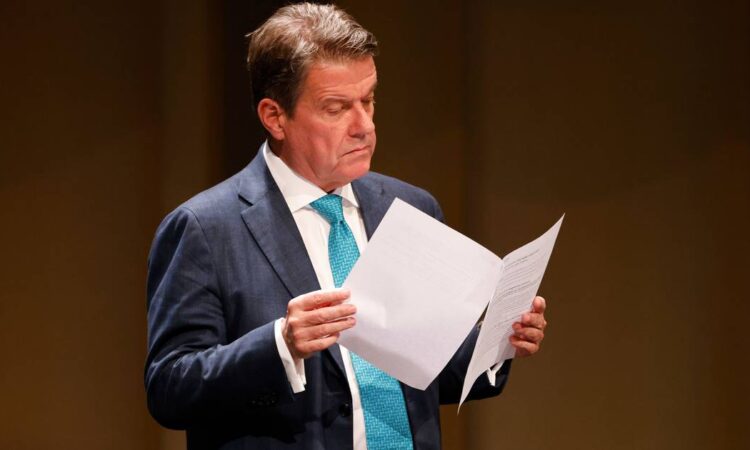
One figure on the panel of starchy Swiss politicians, regulators and financiers stood out. He was dressed in an electric-blue suit and shimmering green tie and, during the hour and a half that followed, his steeply arched eyebrows showed more emotion than the faces of his five fellow speakers combined. The press conference, in March this year, had been called to address the fate of Credit Suisse, the crisis-ridden Zürich bank that threatened the rest of Europe’s financial system. The 167-year-old institution, the panel announced, would be rescued by its biggest rival, UBS. Maybe it was only natural that Colm Kelleher, UBS’s chair, seemed to struggle to contain himself. He was being anointed Europe’s most powerful banker.
As things drew to a close, the speakers stood up and Kelleher’s open hand shot, as if spring-loaded, towards the man to his right. Axel Lehmann, the Credit Suisse chair whose stiff demeanour seemed to convey his discomfort throughout the proceedings, instinctively pulled back. But then Lehmann checked himself, and the biggest bank takeover since the global financial crisis was sealed with the most awkward handshake.
Kelleher has long cut an unusual figure in the world of banking. He has a habit of beginning sentences by saying, “As you know”, before launching into a largely unknowable academic reference. He is a joker who once invoked Harry Potter’s bank Gringotts on an analyst call to relieve his boredom and a disciplinarian known to lock colleagues out of meetings if they are late. He is a smooth salesman with a forensic accountant’s eye for minutiae. Most of all, he’s a talker. Almost everybody in the upper echelons of finance has at least one good Colm Kelleher story.
At 66, Kelleher has also had a front-row seat to the biggest series of shocks to the global financial system since the 1930s. Not least of which was helping pull Morgan Stanley back from the brink after the 2008 crash, when he was its chief financial officer. His working life has been shaped by a responsibility and trauma that has burdened a very small number of executives and is little discussed, even among bankers. And yet, before UBS’s rescue of Credit Suisse, his career mostly played out in supporting roles.
The takeover this year has thrust Kelleher centre stage. His ability to make the merger a success will have wider consequences than for just the Swiss economy, where both lenders dominate. On August 31, UBS will set out its plans for the Credit Suisse business in a delayed earnings report that will reveal how executives plan to reshape the company in greater detail. The union of Credit Suisse and UBS will have enormous bearing on the stability of global banking. Which is why it was such a shock that, when markets opened after the takeover was announced, investors began dumping UBS stock. Watching shares take their steepest plunge in 15 years, Kelleher went to work.
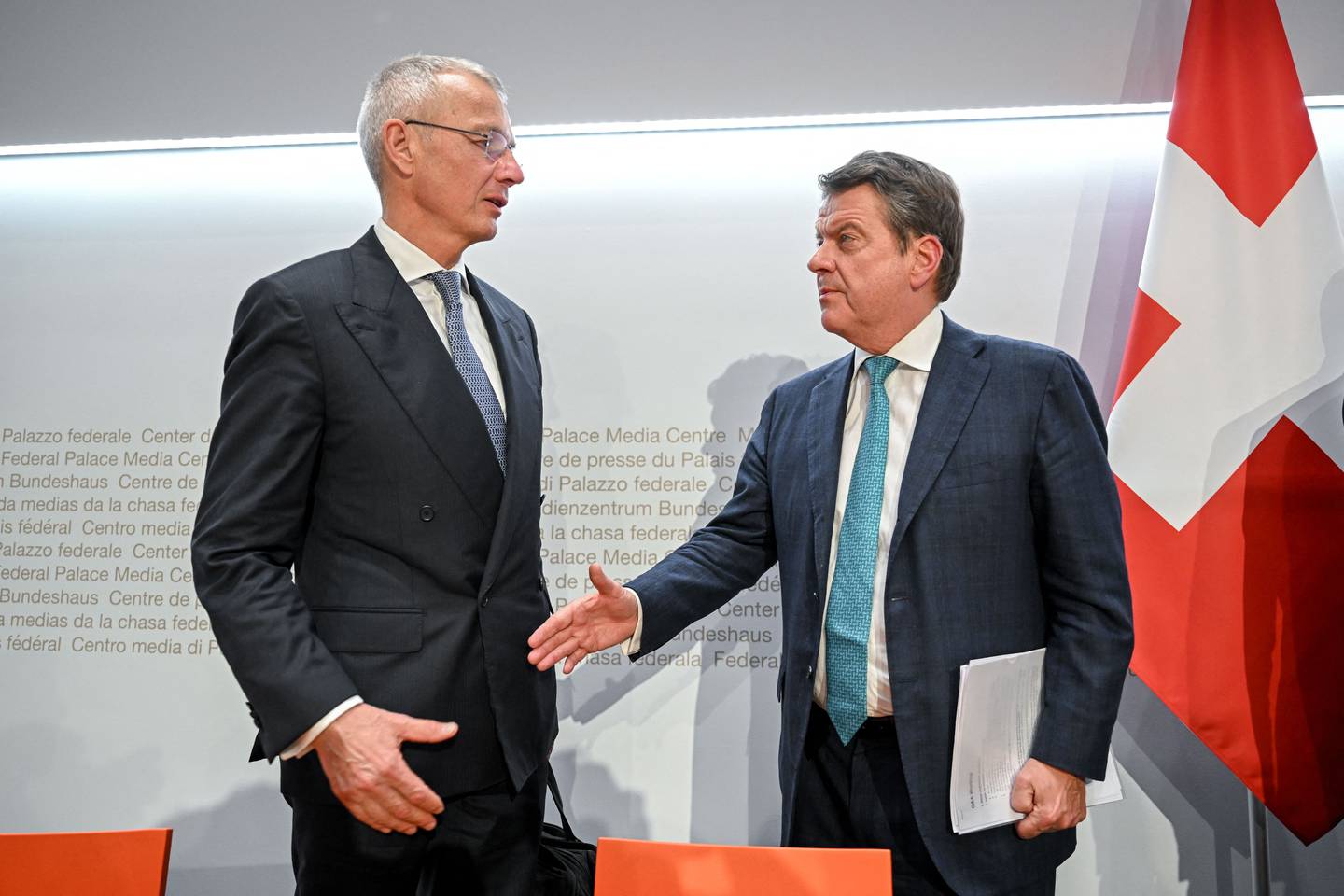
Kelleher was born in 1957, one of nine children to a doctor father and homemaker mother. They were an Irish family in the working-class English town of Warrington, and their roots were closely tended to. The Irish Post came in daily, sent by Kelleher’s maternal grandfather. Schooling followed Catholic orders, almost exclusively with the children of other Irish emigrants, and all eight of the brothers served as altar boys. Summers were spent in Ireland.
The Kelleher household was boisterous. There were fierce board-game rivalries and snooker tournaments on a table that doubled as a dining table. “My mother used to say we were very competitive … in other words, poor losers,” says Niamh Paris, Colm’s older sister, recalling battles of Risk and Mille Bornes, a French card game. Kelleher declined to be interviewed for this article.
He brought his love of strategy with him to Oriel College, Oxford, ditching the “simplistic” games of his childhood for Diplomacy, which he would play “for hours” and “very competitively,” according to a university friend. Despite initially being intimidated by the poshness of Oxford, Kelleher thrived and decided he wanted to be an academic studying Byzantine history. That would have meant staying at college longer than his father could afford to keep him. So Kelleher went into business instead, training in accountancy at Arthur Andersen.
In 1989, he was hired by Bob Diamond to join the London office of Morgan Stanley, the illustrious Wall Street investment bank. Diamond, who later became Barclays’ crisis-era CEO, was struck by Kelleher’s enthusiasm. “He was incredibly smart, articulate, a very serious young man and very committed,” says Diamond. “That doesn’t usually come with such a wonderful sense of humour and such strong interpersonal skills.”
At the time, American banks had identified Europe as their next big market and London was the centre of the action, with its clubby culture of liquid lunches. “But Colm was never part of it. You didn’t see him go for long lunches. He was very serious, very focused. He could smell bullshit,” recalls John Mack, who was then head of Morgan Stanley’s fixed-income division.
Kelleher’s skill with clients would propel his rise, but it was a moment of crisis in 1992 that marked him out. Diamond had just quit to join Credit Suisse and had secretly agreed to take a dozen colleagues from London, New York and Tokyo with him. They all resigned at the same moment, timed to coincide with Mack being on a 12-hour flight. The coup was a major blow to Morgan Stanley, which had to take emergency measures to ensure the London operation didn’t run out of money.
The clean-up was entrusted to Kelleher, alongside a US executive named Tom Wipf. Kelleher’s interest in people paid off in unusual ways. He made several “battlefield promotions” of junior staff that enabled a nimble response. A lot of executives wouldn’t have been as plugged into the back office, but “it was very clear that Colm had established command and control,” recalls Wipf, whom Kelleher has recently recruited to help integrate Credit Suisse’s US operations into UBS. “He knew how to establish a war room, knew how to … direct people in a way that was not emotional.” Kelleher also proved adept at reassuring panicking clients that the bank really could meet its commitments, a skill he would employ repeatedly over the following three decades.
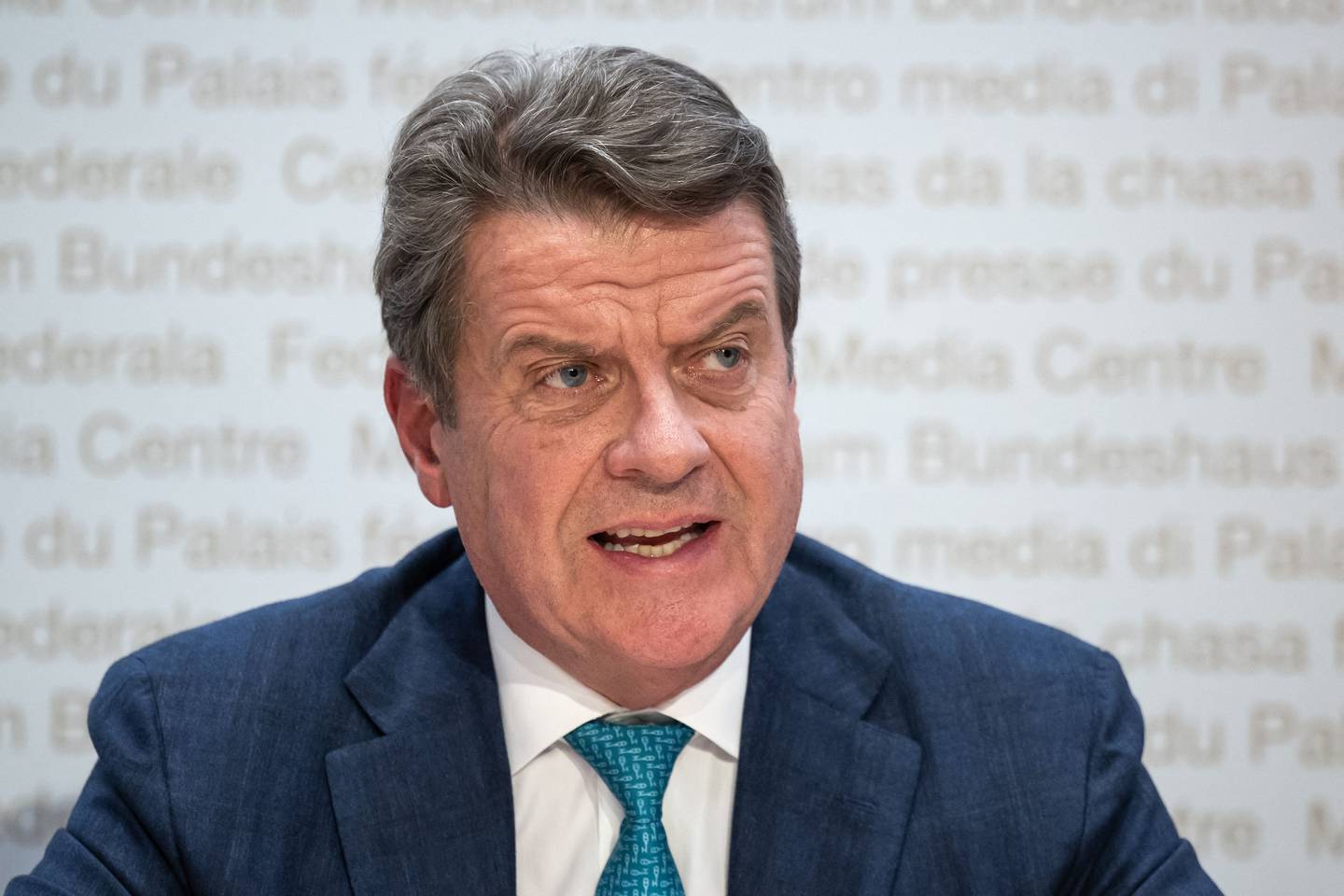
In 2007, Kelleher was appointed CFO of Morgan Stanley. He had spent the previous two years running the bank’s high-profile global capital markets business, where he cemented his reputation as a pragmatic operator. He had two sons and a daughter in school in London, a new flat in New York and a big job. The boy from Warrington, with its “No dogs, no Irish” signs, had made it to base camp, just below the pinnacle of Wall Street. In Kelleher’s office, a photograph of his elderly father took pride of place, reminding him of this.
As Kelleher took over, the sub-prime mortgage crisis was just beginning to rip through the US economy. Within months, Morgan Stanley’s sub-prime trading was $3.7bn in the red, and Kelleher had the unenviable task of announcing the first quarterly loss in the bank’s 72-year history. His familiarity with numbers would serve him well as the crisis metastasised. Paul C Wirth, Morgan Stanley’s financial controller at the time, recalls that, when the bank’s risk department initially underestimated sub-prime losses, “We knew it was much, much more than that.” Wirth says Kelleher was able to ask detailed, probing questions in a way other executives couldn’t, avoiding the comfortable ignorance that contributed to the severity of the crash.
As rival Wall Street banks buckled, Kelleher raced to firm up Morgan Stanley’s balance sheet. Conference room 3F on the third floor of its Manhattan headquarters was converted into a “cash room”. Kelleher stationed a team to monitor what was coming in and going out of the bank. The room was kitted out with computers and workstations centred around an oval meeting table. Staff worked 18-hour days, amid stacks of paper that only grew taller. At one point, the amount of fast food being consumed in 3F alarmed Mack, by then CEO, and he limited deliveries to tuna sandwiches and salads. “They looked like shit, and I was worried they would keel over from the stress and their artery-clogging diet,” Mack wrote in a recently published memoir.
Kelleher frequently called in on the cash room. One evening in September 2008, when Lehman Brothers was still teetering on the brink of collapse, the team in 3F informed Kelleher that hedge fund clients had pulled out more than $50bn in a single day. He went to Mack’s office. “John, I feel physically sick. I’m tasting bile in my throat,” he told his boss. “The fact is, we’ll be out of money by Friday.”
Kelleher strove to put on a stoic front. “He was carrying the weight of the financing of the firm,” recalls Mack, who nicknamed Kelleher Eeyore and, over the years, sent him some 20 stuffed toys and figurines of the eternally gloomy donkey in Winnie the Pooh. “I would go in his office and say, ‘We are all stressed here, but when you come out you can’t be Eeyore.’ Part of leadership is putting forward an optimistic face,” says Mack.
But in private, Kelleher couldn’t help but let his guard down. At times, to shut out the meltdown, he zeroed in on his Blackberry’s tiny screen as he tried to beat his BrickBreaker high score over and over. He frequently slept on the couch in his office and, over several months, put on 35lb. “I saw him despondent and in tears on particular nights,” says Wirth, recalling occasions in the CFO’s 40th-floor office when it was just the two of them. Eventually Mack and Kelleher engineered a $9bn capital injection from MUFG, the Japanese bank, that ensured Morgan Stanley’s survival.
Before Morgan Stanley was out of the woods, Kelleher’s 86-year-old father became gravely ill. After being convinced to return to Warrington by colleagues, Kelleher kept a vigil by his father’s bed in his final days, then worked into the night from his hotel room, making calls to New York and racking up a huge phone bill to keep on top of Morgan Stanley’s perilous state. Kelleher was there when his father died not long after.
Kelleher has told friends that he has suffered from post-traumatic stress from this period. He believes that Morgan Stanley was “as close to the brink as possible,” according to one of them, and that if it had gone under, the financial crisis couldn’t have been stopped. He worried about being the CFO of a failed bank and spending years defending himself in court. “Post-crisis, he was extremely candid with people about the impact that being so central in the financial crisis had on him, and how he dealt with that,” says Clare Woodman, a high-ranking MS executive. “He was very open and honest before there was so much focus on wellness.”
By 2009, Mack was ready to retire and had two potential successors: Kelleher and James Gorman, a straight-talking Australian who ran Morgan Stanley’s wealth business. The pair enjoyed a friendly rivalry. Each had been groomed by Mack to take over. But both men were in their early 50s, meaning whoever got the top job was unlikely to retire before the other. When Gorman was named Mack’s successor, Kelleher knew he would never be Morgan Stanley’s CEO, a position he had coveted for more than decade.
A lot of executives would have moved on, but Kelleher stayed. He spent the next decade working alongside Gorman to reshape the business. “We share a common outlook and approach,” says Gorman, who is also of Irish descent. “I don’t know if it’s cultural or DNA, but you’re simpatico with people who come with a similar mindset to life, and we do.” Kelleher, he notes, “was not nakedly ambitious, like many on Wall Street”.
In 2019, when Kelleher turned 62, he decided to leave. He’d wanted to travel in Ireland, but the Kellehers spent most of the Covid-19 lockdowns at their estate in Tuscany, a hilltop villa with views of the surrounding countryside. A typical day began with an hour’s exercise before breakfast, followed by two hours of piano practice and an afternoon ploughing through Edward Gibbon’s multi-volume The History of the Decline and Fall of the Roman Empire, which he hadn’t managed to finish at Oxford.
Kelleher also used his time away to walk some 500 miles of the Camino de Santiago de Compostela, the religious pilgrimage across northern Spain, with one of his younger brothers. They dedicated the trip to the memory of their parents, and Kelleher used the walk to raise more than $330,000 for charity. With the local wines on offer not up to his normal standards, the oenophile Kelleher restricted himself to a hip-flask of watered-down Jim Beam. But he felt he had unfinished business in the banking world, and headhunters’ inquiries started to break through.
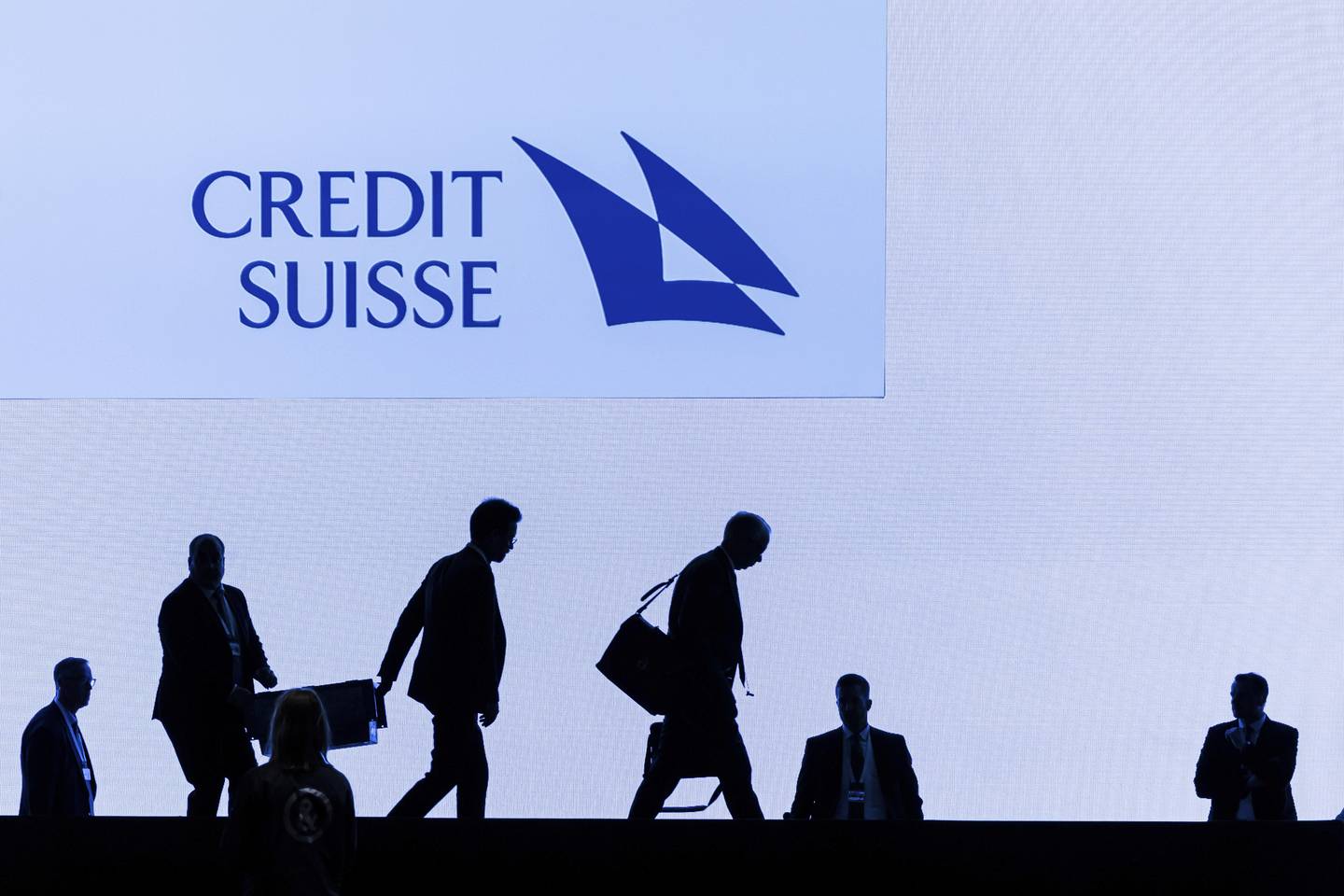
Kelleher was dumbstruck for two whole minutes. It was March 2023, and he had just received the call he had been dreading. His mind raced back a decade and a half. After hanging up and putting his mobile back into his jacket pocket, he re-entered the meeting room he’d left to take the call. Two of his most-trusted advisers looked up at him. From his face, they knew exactly what he had been told. “I can’t believe this is happening again,” Kelleher murmured.
Kelleher had been hired a year earlier to lead UBS, succeeding long-time chair Axel Weber. The board of the largest global private bank had wanted a Swiss national to take the chair’s role, someone with a strong international reputation. In addition, the ideal candidate would have experience with wealth management and investment banking, the group’s two main business lines. Headhunters Egon Zehnder had struggled to find any Swiss candidates who fitted the bill.
In every respect but his nationality, Kelleher was a match. The UBS role was not the first opportunity that had come his way while he was in semi-retirement. He had been put forward as chair of German lender Deutsche Bank by private equity group Cerberus as part of a botched attempt to take control of the German lender’s board. He had also been approached about taking the same role at Credit Suisse but decided the bank was too much of a mess. UBS, in contrast, was the only European bank with prestige similar to Morgan Stanley. It might allow Kelleher to achieve what he’d once dreamt of.
When UBS’s board was presented with two candidates, Kelleher and Dominic Barton, the former global head of consulting group McKinsey, it voted unanimously for Kelleher. Lukas Gähwiler, a long-time Swiss banker, was appointed vice chair. His close ties to Switzerland’s political and business elite, the board surmised, would help the Irishman navigate Zurich’s tight-knit finance community.
The Kellehers moved into the Zürich apartment a few blocks from UBS’s headquarters that had just been vacated by Weber. In order to ingratiate himself with his new Swiss colleagues, Kelleher read up on the country’s history and spontaneously digressed on the architecture of the city’s cathedrals when walking to meetings. His sense of humour sometimes got lost in translation. Swiss directors often asked British and American colleagues to clarify whether the chair actually meant what he had just said. In the boardroom, Kelleher kept executives on their toes. “You never want to bring something to him without understanding the details, otherwise you will be sent back to do some more work,” says a person who meets Kelleher regularly.
From the start, Gähwiler insisted UBS should be prepared for the collapse of Credit Suisse. The once-venerable financial institution, which had been at the heart of the Swiss economy since its industrial revolution, had limped from one scandal to the next in recent years. Before jumping to UBS, Gähwiler had worked for Credit Suisse for 20 years and had grown increasingly worried about what he saw. In the previous year alone, Credit Suisse had been forced to close a $10bn suite of funds following the collapse of finance firm Greensill Capital; suffered a $5.5bn trading loss on the implosion of family office Archegos; and become the first Swiss bank to face criminal charges over dealings with a group of cocaine-smuggling Bulgarian ex-wrestlers.
Everyone could see that Credit Suisse was in a perilous state by the middle of 2022, when the board promised a dramatic restructuring. In October, before the new strategy was announced, social media rumours about the bank’s imminent demise prompted customers to withdraw tens of billions of dollars. When the bank’s management team finally announced a turnaround plan a few weeks later, investors were severely underwhelmed. Day after day, the bank’s shares hit new lows, while clients continued to pull out their savings.
Months of secret preparation had gone into making sure that UBS would not be taken by surprise
Gähwiler and Kelleher agreed they needed a contingency plan. Kelleher enlisted Morgan Stanley to act as advisers to the board and begin to prepare the ground for a potential takeover. A strategy committee consisting of Kelleher and four other directors was tasked with monitoring the unfolding situation at Credit Suisse. UBS’s management team was also asked to provide a detailed analysis of the impact a rescue of Credit Suisse would have on UBS. Just as the collapse of Bear Stearns in 2008 had prompted Kelleher to batten down the hatches before Morgan Stanley’s own near-death experience six months later, he was again preparing for the worst.
Despite all the preparation, Kelleher was convinced that another European lender would swoop in to buy Credit Suisse. He believed the Swiss authorities would insist on maintaining two global banks, even if it meant one fell into foreign ownership. All that changed with the collapse of regional US lender Silicon Valley Bank on March 10 2023. The failure sent shock waves through the global banking system and jolted confidence in the biggest financial institutions.
Then came the call. Kelleher, Gähwiler and Markus Baumann, the company secretary, were meeting their advisers when the phone interrupted them. It was Thomas Hirschi, head of banking at Swiss financial regulator Finma, on the line. Hirschi told Kelleher he wanted a delegation of UBS managers to come to Finma’s Zürich offices two hours later and begin discussions with Swiss officials about rescuing Credit Suisse. Credit Suisse shares had fallen 30 per cent that day, having dropped 85 per cent over the previous two years. Executives were pleading with the authorities for a credit lifeline, as well as a public show of support that the bank would not be allowed to fail. Otherwise, it would go bust within days.
Two hours later, Kelleher and his team arrived at the regulator’s tired-looking office block in central Zürich. Inside, they were led into a ground-floor room numbered 101. The unintentional reference to Room 101, the torture chamber located within the Ministry of Love in George Orwell’s 1984, wasn’t lost on Kelleher. He was flanked by Gähwiler, Baumann and UBS’s general counsel, Barbara Levi. In Kelleher’s hand was a single A4 sheet of paper, setting out the 11 terms on which his bank would be willing to step in. Months of secret preparation had gone into making sure UBS would not be taken by surprise.
Meeting the UBS contingent were the heads of Switzerland’s three main financial authorities, including Karin Keller-Sutter, head of the finance ministry. Before any pleasantries could be exchanged, Keller-Sutter got right down to business: “We have decided that Credit Suisse is no longer viable,” she began. “We have two choices: resolution [winding down the bank] or you have to step in to do a deal. We trust UBS will do the right thing.” (The Swiss finance ministry said it could not confirm details of its dealings with the banks.)
Over the next hour, the Swiss authorities agreed to UBS’s broad terms for rescuing Credit Suisse. These included granting regulatory approvals for the takeover, providing liquidity support and offering protection against losses. Both sides agreed a final deal would need to be signed and announced by Sunday evening to make sure that, when Asian markets opened later that night, there was clarity about Credit Suisse’s fate. Kelleher and the UBS board had less than 100 hours to make the details of the deal work.
The following four days were a continuous stream of meetings, negotiations with Swiss authorities and internal briefings as more details about Credit Suisse’s instability came to light. UBS’s Bahnhofstrasse headquarters became the nerve centre of the operation. An ever-increasing number of executives, lawyers and advisers were drafted in to work on the finer points of the mammoth transaction. Up to 10 different groups were set up to tackle different parts of the deal; some staff worked in 48-hour shifts.
Yet, unlike at Morgan Stanley 15 years earlier, Kelleher was not forced to sleep in his office. He managed to escape from the office on the night of St Patrick’s Day to celebrate at a nearby Irish pub named after James Joyce. Before he had finished his pint of Guinness, he was dragged back by his chief of staff.
Communication between the two banks had been minimal over the previous few days, with government officials acting as intermediaries. But as negotiations progressed, the Credit Suisse camp grew increasingly exasperated that UBS was demanding too much. At one point, Credit Suisse chair Axel Lehmann wrote to Kelleher outlining his bank’s concerns over the proposed deal. Having read the note, Kelleher called Lehmann and gave him an ultimatum: UBS would pay just $1bn for Credit Suisse, take it or leave it. A year earlier, Credit Suisse’s market capitalisation was more than $25bn.
Early on Sunday morning, Kelleher, along with an entourage of UBS executives and board members, travelled to Bern, the Swiss capital. They were due to meet the Federal Council, the seven-member collective head of the Swiss state, at 9am to finalise the deal. They were kept waiting until 10.40am. When the meeting finally began, Kelleher assured the cabinet members that UBS would do what was necessary, as long as it was in the interests of his bank’s stakeholders. The takeover received the government’s backing; all that needed to be confirmed was the price.
Throughout Sunday afternoon, Kelleher and Ralph Hamers, UBS’s CEO, holed up in Bern as both sides’ negotiators locked horns. Kelleher did not pass the time playing on his phone. Instead, he spent hours doing Monte Carlo simulations in his head, trying to work out where the deal could fall apart and what might go wrong. UBS’s lowball bid gradually rose to just over $3.4bn, a number both sides could live with.
After the awkward handshake press conference announcing it all, Kelleher was driven back to Zürich in his Porsche Macan, a vehicle chosen to balance comfort with a desire to avoid appearing too ostentatious in Calvinist Switzerland. During the trip, he listened in on a call with analysts in which Hamers and the chief financial officer broke out the details. Around the world, UBS’s biggest shareholders were also tuning in and they were not impressed.
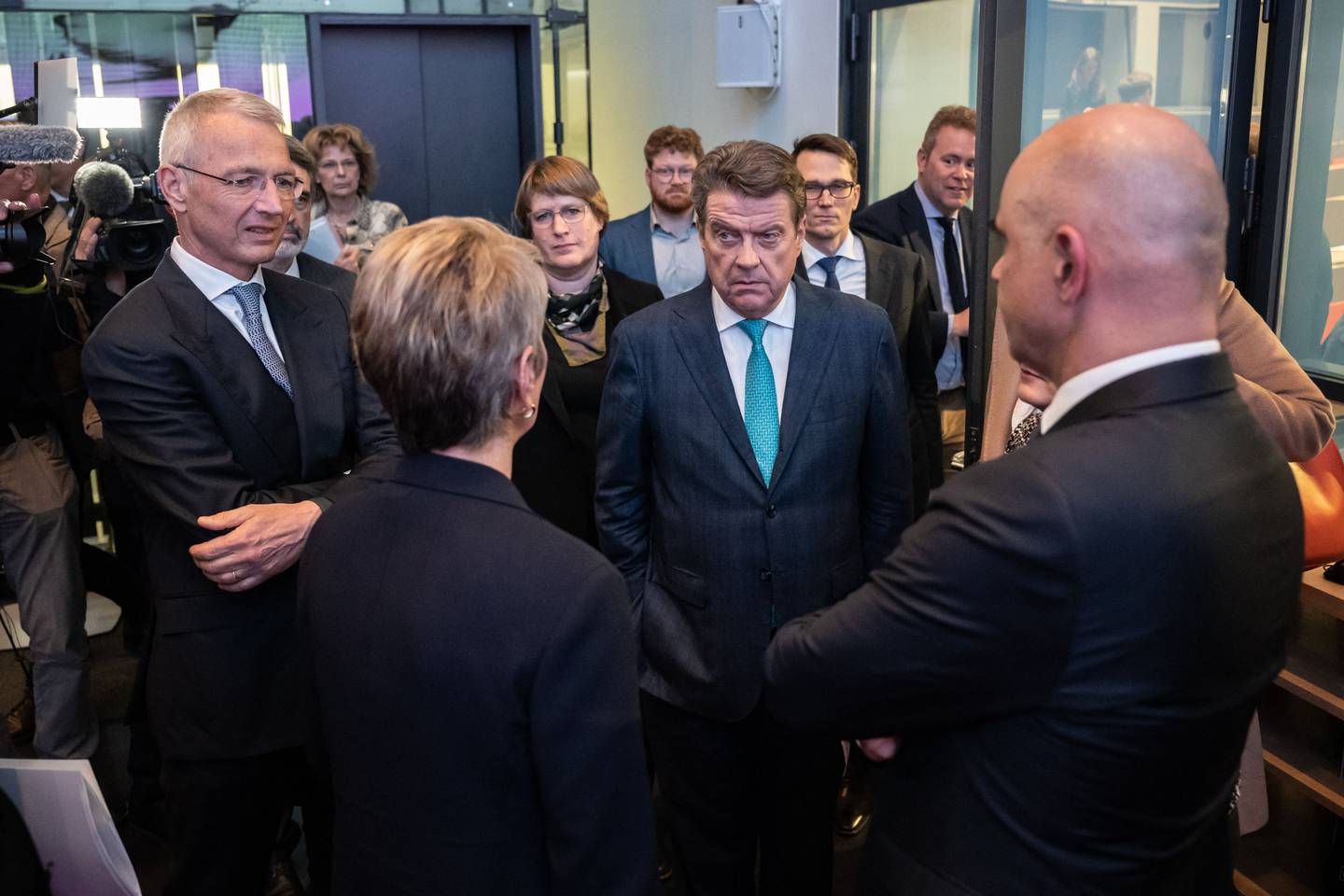
UBS’s decision to bail out its long-time competitor won plaudits from central bankers and politicians. But the takeover has proven unpopular in Switzerland. The prospect of mass job cuts and branch closures has been a contentious issue in advance of national elections this autumn. In opinion polls, three-quarters of voters say they want the combined bank broken up. Some Swiss parliamentarians have voted against the government financial-support package underpinning the deal, while others have drawn up plans to prevent its balance sheet from dwarfing Switzerland’s GDP.
An army of lawyers around the world are poring over the hastily worked-out details, trying to find weak spots to launch suits on behalf of investors and clients who lost out on Credit Suisse’s collapse. All the while, present and former senior executives from both UBS and Credit Suisse, along with government ministers and regulators, will be expected to give sworn testimony as part of a parliamentary inquiry into the downfall of Credit Suisse over the coming months.
Kelleher gave an early indication of how he will deal with the onslaught coming his way the morning after the deal was signed, as UBS shares sank. For most of the day, Kelleher tried to reassure investors that the bank had negotiated enough of a safety net from the Swiss authorities to ensure that the deal would be a success in the long term. He made time for a call to one person not among the bank’s biggest shareholders, the beginning of a plan he would later code name Operation El Toro.
Over the last weekend of March this year, as the UBS board discussed who within the bank’s executive team would play a role in the huge integration process that lay ahead, some directors expressed their doubts about the ability of CEO Hamers and CFO Sarah Youngwood to oversee one of the most complicated bank mergers in history. Ever since Hamers had started at UBS two and a half years earlier, there had been questions about his suitability. Kelleher’s predecessor had hired him for his knowledge of technology, overlooking his lack of experience running wealth management or investment banking businesses.
At first, Kelleher tried to coach Hamers to perform better in front of shareholders. Kelleher banned him from using management buzzwords and got him to simplify his message. One fund manager who met Kelleher and Hamers during this period described the chair as the “alpha male” in the room, who would dominate the conversation and only allow his chief executive to speak when fielding follow-up questions. Without the takeover, Hamers would have been given another year to prove he could take the business forward, according to a person familiar with the relationship. But suddenly the job seemed too big for him.
From the moment Kelleher moved to Zürich, he had sought the advice of Sergio Ermotti, the former UBS chief executive who had led the group from a huge rogue-trading scandal in 2011 to becoming one of the most profitable banks in Europe. (Ermotti cuts an imposing figure with his athletic build and sharp suits.) Kelleher asked for his views on the bank, its strategy and executive team. There was a running joke between the two men that, at some point in the future, Ermotti would be skiing down the slopes of St Moritz when a DHL parcel would arrive containing his contract to return to UBS. Now that time had come.
Kelleher phoned Ermotti and asked if they could meet the following evening. With the deal announcement having been broadcast on Swiss national television, Kelleher was beginning to be recognised on the streets of Zürich. So they agreed that rather than meeting in public, they would go to Gähwiler’s home for dinner. The vice chair would join them, though Kelleher and Gähwiler made sure to take separate vehicles to avoid arousing suspicion.
Over a meal and two bottles of expensive Chianti, the trio discussed whether Ermotti would be willing to return. The Swiss government had already been lining Ermotti up to become chair of Credit Suisse in case it had to nationalise the bank should the UBS deal fall through. Hamers agreed to step down. A few days later, having received board approval, Ermotti was installed as chief executive with a mission to ensure the takeover of Credit Suisse was a success.
Only two weeks had passed since Kelleher received the call from Thomas Hirschi of Finma. He had dreaded it but, hardened by the 2008 crisis, he had been ready. When his initial plan faltered, a contingency was already in progress. In a fortnight, Kelleher had negotiated the most important banking deal of the past decade and a half, staunching a spreading banking crisis, and ruthlessly replaced his own chief executive, staunching a revolt among UBS shareholders.
On Thursday morning, UBS will announce its half-year results. Over the past five months, the group’s shares have shot up 30 per cent, as many investors have gradually been convinced that the deal will create the global banking behemoth Kelleher and Ermotti have promised. This time, Ermotti will be the one telling shareholders how he and Kelleher intend to steer the combined business in the long term. Kelleher will not be front and centre. Europe’s most powerful banker will revert to his more natural role, directing events from the sidelines.
Laura Noonan is the FT’s financial regulation editor. Owen Walker is the FT’s European banking correspondent
Follow on Twitter to find out about our latest stories first
Copyright The Financial Times Limited 2023
© 2023 The Financial Times Ltd. All rights reserved. Please do not copy and paste FT articles and redistribute by email or post to the web.





